Speakers and Abstracts
(The speakers are listed in the order of the programs’ sessions)Session 1: Let’s Talk Anxiety
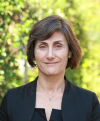
Leyla Dirani, PhD
Dr. Akoury Dirani is a child and adolescent psychologist, Associate Professor in the Department of Psychiatry of the American University of Beirut, president of the Lebanese Order of Psychologists. Her clinical practice, teaching and research focus on vulnerable children and their parents.
Starting her career as a clinician in 1986, she has developed between 1987 and 2000 two leading services in the country: inclusive education for children with special education needs, and a specialized program for children with autism. She has also contributed to the establishment of national policies on child protection. Dr. Akoury Dirani academic career started in 1987 at Saint Joseph University- Beirut where she held leadership positions, mainly as Director of the Institut Libanais d’Educateurs, then as main actor in the establishment of two university degrees: speech therapy and psychomotor therapy. She has joined the Department of psychiatry at the American University of Beirut in 2008 as a clinician, teacher and mentor, and researcher. There, she led the Division of child and adolescent psychiatry and psychology, founded the Mental Health Academy, designed, and currently leads the Child and adolescent track of the Clinical psychology training program. Dr. Leyla Akoury Dirani’s pioneer work has been extended to the regulation of the profession of psychology. She has steadily worked on the Licensing law (law issued in 2017), then the creation of the Lebanese Order of Psychologists (Law issued in January 2022). She is its first president since March 2022.
Abstract
Differentiating medical illnesses from anxiety disorders is often arduous, particularly when professionals work in silos. This talk will try to bridge the gap between medicine and mental health. We will start with a brief presentation of anxiety disorders across the lifespan, focusing on the main manifestations. We will then define the role of physicians in the screening and early identification of the disorder, and the basic interventions they can provide. The role of psychologists in treating anxiety will be also presented. Models of collaboration between professionals to serve the best interest of the patient will be exposed.
Session 2: Identifying Anxiety-related Psychosomatic Symptoms
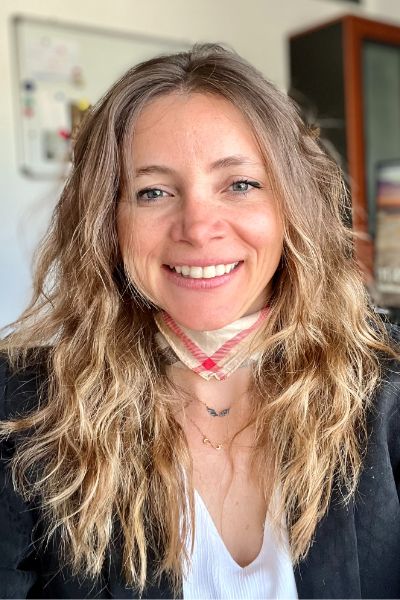
Myriam El Khoury Malhame, PhD
Dr. El Khoury-Malhame is an Assistant Professor of Psychology in the Department of Social and Education Sciences at the Lebanese American University.
She strongly advocates the bi-directional connections between biology and psychology with a special focus on neurosciences as the brain remains the most vital yet understudied organ in psychology. She has combined both approaches in her trainings as a clinical psychologist and a cognitive neuroscientist.
She worked for her doctoral studies under the supervision of David Servan-Schreiber and Stephanie Khalfa, examining the cortico-limbic, physiological and clinical markers of PTSD and explored how EMDR psychotherapy improves PTSD symptoms by restoring brain structure and function.
She has given multiple trainings and workshops, in healthcare settings tackling stress and pain management and promoting daily lifestyle changes that promote health and overall wellbeing.
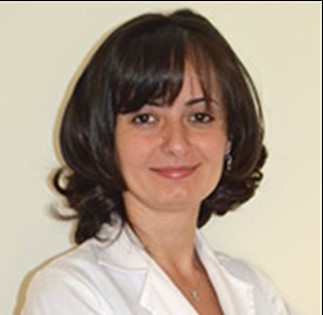
Nancy Maalouf, MD
Dr. Maalouf serves as a Clinical Assistant Professor of Neurology at the Department of Neurology of the Lebanese American University Gilbert and Rose-Marie Chagoury School of Medicine, and is a full-time Neurologist at the LAU Medical Center-Rizk Hospital.
Dr. Maalouf holds the American Board of Neurology and Psychiatry (ABPN) certification. She has made many contributions to the field of neurology, with a significant body of work published in peer-reviewed journals. Her research encompasses various topics, including cervical artery dissection, status epilepticus, migraine, neuropathy, and more.
Furthermore, she has delivered expert presentations on a wide range of neurological subjects at both national and international conferences and symposiums.
Abstract
Anxiety disorders affect millions of individuals worldwide, often leading to debilitating psychosomatic complaints that significantly impact overall well-being. This session aims to provide a comprehensive understanding of anxiety-related psychosomatic symptoms, offering valuable insights to recognize and manage these symptoms effectively.
Session 3: Connection Between Anxiety and Eating Behaviors in the Lebanese Context
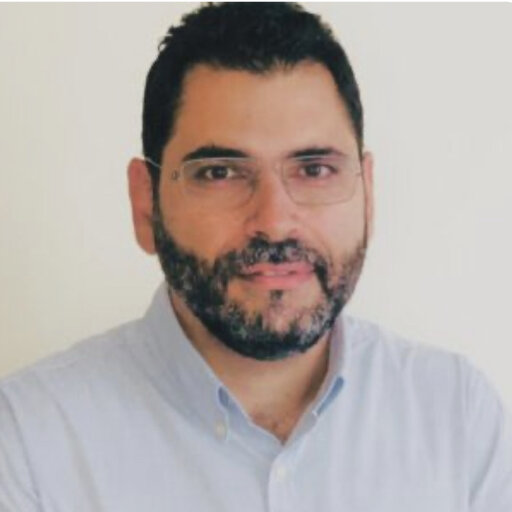
Rami Bou Khalil, MD
Dr. Bou Khalil is an Associate Professor of psychiatry at Saint-Joseph University in Beirut, Lebanon. He is currently the head of department of psychiatry at Hotel-Dieu de France hospital.
Academically, he has an interest in eating disorders, obtaining his PhD from the University of Montpellier, France, in 2022. Additionally, he holds University Diplomas in cognitive-behavioral therapy (CBT), psycho-oncology, addiction medicine, and psychiatric comorbidities with physical diseases. Dr. Bou Khalil has actively participated in scientific research and has authored numerous publications in international scientific journals. Moreover, he has taken on various roles on the editorial boards of esteemed scientific journals, including the Asian Journal of Psychiatry. Graduating from the medical school at Saint-Joseph University, Beirut, in 2006, Dr. Bou Khalil furthered his education by earning a diploma in general psychiatry from the same university in 2011. He also holds a partial specialization degree in psychiatry from Paris-Diderot University, France, and from Louvain’s Catholic University, Belgium.
Abstract
This session explores the complex relationship between anxiety and eating behaviors in Lebanon. It evaluates the possible connection of anxiety disorders in the Lebanese population to various eating patterns. Cultural influences, family dynamics, and societal pressures are considered, with a focus on the role of traditional cuisine and media. A study on the relationship between PTSD symptoms post-Beirut port explosion and the development of disordered eating behaviors will be exposed. Additionally, the availability of mental health services and potential interventions within the Lebanese context are discussed. This presentation highlights the need for culturally sensitive approaches to address these issues and promote holistic well-being in Lebanon and similar cultural contexts.
Workshop 1: Decoding Anxiety’s Cardiac Echoes
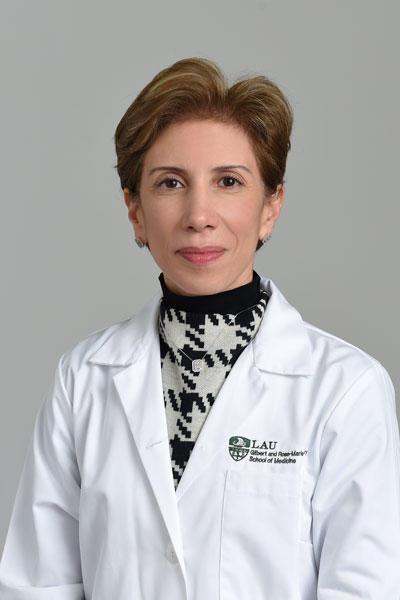
Jocelyne Azar, MD, MHM, MHPE
Dr. Azar is a Clinical Assistant Professor at the LAU School of Medicine in the Division of Psychiatry/Department of Internal Medicine. She is the Head of the Division of Psychiatry at the LAU Medical Center-Rizk Hospital. Dr. Azar is actively involved in the academic development of students and residents as the residency program director and core clerkship director.
Dr. Azar graduated with an MD and completed her residency training in psychiatry at the Saint Joseph University Faculty of Medicine. She has a University Diploma in Eating Disorders from St. Joseph University/Rene Descartes, Paris V. A Diploma in Forensic Medicine from St. Joseph University/Universite de Rouen, France. And, a Diploma in Cognitive Behavioral Therapy from St. Joseph University/Rene Descartes, Paris V.
Dr. Azar then pursued a Master’s degree in Health and Hospital Management at the Ecole Superieure des Affaires in Lebanon. She also completed a Masters in Health Professions Education (FAIMER Distance Learning) at Keele University in the UK.

Robert Fakhoury, MD
Dr. Fakhoury is a general and interventional cardiologist who graduated from the Lebanese University School of Medicine in 2004, and obtained a Diploma in Interventional Cardiology from Rene Descartes University Paris V-France in 2007.
He has previously held appointments at the Clinique du Levant, Arz Hospital, Middle East Institute of Health, and Notre Dame de Secours Hospital. Additionally he developed the Cardiac Catheterization Laboratory at the Military Hospital in Badaro-Beirut in collaboration with their cardiac team, and provided services there for five years.
Dr. Fakhoury joined the LAU Medical Center-Rizk Hospital in 2007 as part-time faculty in the Division of Cardiology. In 2021, he became a member of the full-time faculty of the School of Medicine and was appointed Chief of Section in Cardiology at LAU Medical Center-St. John’s Hospital.

Sahar Obeid, PhD
Dr. Sahar Obeid is an assistant professor of psychology in the Department of Social and Education Sciences at LAU.
Fascinated by clinical psychology in its research, teaching and clinical facets, she obtained her PhD in Clinical Psychology from the Holy Spirit University of Kaslik. Dr. Obeïd is a clinical psychologist and cognitive behavioral therapist since 2009.
Also fascinated by research, she has 148 international peer-reviewed published articles so far and had multiple conference papers both as abstracts and oral presentations in local and international conferences.
Abstract
This workshop aims to enhance participants’ understanding of the complex relationship between anxiety and cardiac-like symptoms. By promoting collaboration between medical and mental health professionals, the aim is to optimize patient care, reduce unnecessary interventions and improve the overall well-being of individuals experiencing anxiety-related symptoms. A comprehensive exploration can pave the way for a more holistic approach to patient care, acknowledging the profound interplay between the mind and the body.
During this workshop, speakers will explain the overlap between cardiac and anxiety symptoms, the psychobiological basis of anxiety stress response and effects on cardiovascular system, neural pathways linking anxiety and cardiac-like symptoms, the role of autonomic system in generating somatic symptoms as well as psychosocial factors influencing cardiovascular outcomes. In addition, assessment and differential diagnosis will be discussed as well as treatment and management.
Workshop 2: Breaking Bad News with Compassion
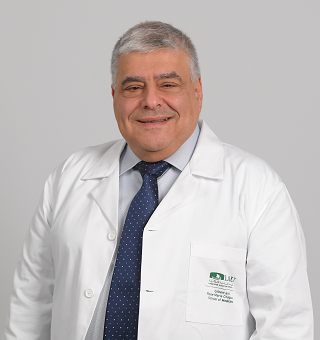
Rachid Rahme, MD, FRCS
Dr. Rahme is the Head of the Emergency Medicine Division at the Lebanese American University Medical Centre St. John’s Hospital in Jounieh Lebanon.
Dr. Rahme is board certified and is a fellow of the Royal College of Surgeons (Accident and Emergency). He studied at the University of London at Saint George’s Hospital Medical school and completed his post graduate training in both general Surgery and in Accident and Emergency.
He practiced in London for 30+ years as Consultant in Surgery, Consultant in Accidents & Emergency, Academic Coordinator and Harley Street Specialist. He has a particular interest in clinical teaching and in the new setup of ER departments.
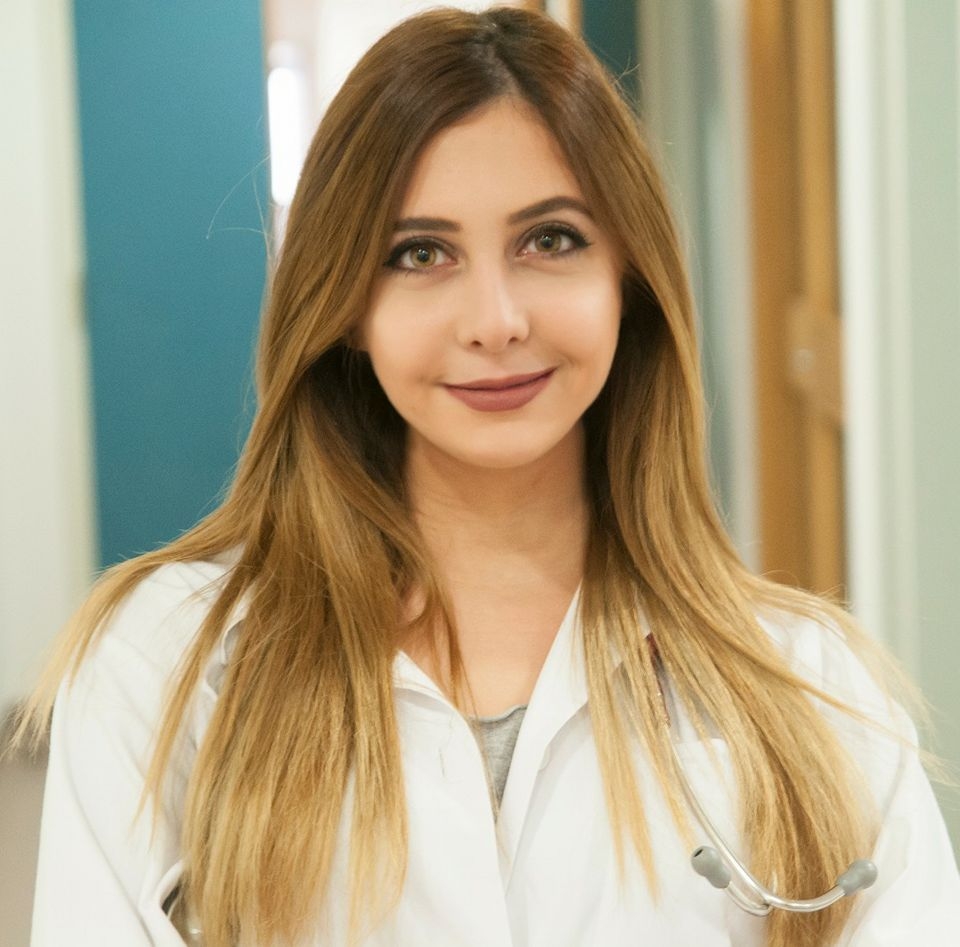
Yara Said, MD
Dr. Said is a is PGY 5 in psychiatry at the LAU Gilbert and Rose-Marie Chagoury School of Medicine.
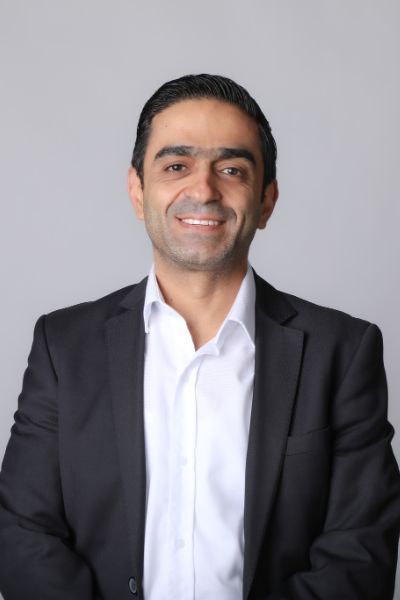
Toni Sawma, PhD
Dr. Sawma is an Assistant Professor of Practice /Clinical Psychology in the Department of Social and Education Sciences at LAU.
Dr. Sawma practiced as a psychotherapist in private clinics since 2013. He founded the Psychology Unit at Notre Dame Des Secours University Hospital (CHU NDS) – Lebanon (2014-2021). He played an active role to integrate psychosocial care – dealing with the emotional and supportive aspects of cancer –into mainstream cancer care in Lebanon. In addition to offering mental health services to medical and surgical patients (inpatient and outpatient care) as the Head of Psychology Unit in CHU-NDS, he served as a consultant / clinician in different psychiatric units and mental health institutions in Lebanon. Dr. Sawma was involved in corporate training on stress management, communication skills, ergonomics and leadership since 2013.
Academically, Dr. Sawma was involved in teaching and supervising master studies in different educational programs (Clinical Psychology, Industrial Psychology, and Medical Education Programs). He was an Assistant Professor of Psychology at Effat University (Jeddah-KSA) and a lecturer in the Holy Spirit University of Kaslik (USEK), the Department of Business and Commercial Sciences in Le Conservatoire National des Arts et des Métiers (Le CNAM) and the École Nationale d’Administration (ÉNA).
Abstract
Delivering bad news is an emotionally challenging task that requires a delicate balance of empathy, clarity, and compassion. This workshop aims to equip healthcare professionals with the necessary skills to effectively communicate bad news while demonstrating empathy and support.
During the workshop, speakers will explore the relationship between receiving bad news and anxiety, discuss how individuals coping with anxiety may experience heightened distress when faced with challenging information and explain the potential physical, emotional, and cognitive reactions that may arise in response to bad news. They will Introduce effective communication strategies for breaking bad news with empathy and compassion, discuss the importance of active listening, non-verbal cues, and validating emotions and provide guidance on delivering difficult information while maintaining sensitivity and respect.
Workshop 3: Managing Anxiety in Children and their Parents
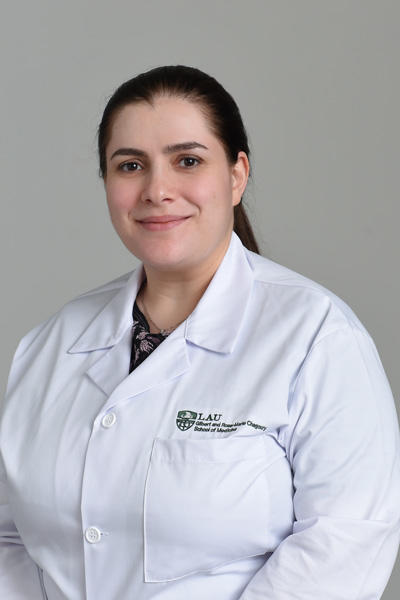
Abeer Hani, MD
Dr. Hani is a Clinical Assistant Professor of Pediatrics and Neurology at the LAU Gilbert and Rose-Marie Chagoury School of Medicine and LAU Medical Center-Rizk Hospital, with expertise in pediatric neurology, epilepsy, and intraoperative monitoring. She completed her M.D. degree at the American University of Beirut in Lebanon in 2008, then pursued a three-year residency training in Pediatrics at AUB between 2008 and 2011. At Duke University in Durham, North Carolina, U.S.A., she completed a three-year fellowship in Child Neurology from 2011 to 2014, followed by a one-year fellowship in Clinical Neurophysiology, Epilepsy and Intraoperative Monitoring in 2014-2015. Dr. Hani is an active member of multiple local and international scientific committees. She is also an active researcher and has authored many publications and book chapters. Her current areas of research include epilepsy and developmental delays. She is also heavily involved in academic teaching and is the Pediatrics Residency Program Director at LAU Medical Center-Rizk Hospital. Dr. Hani serves as a consultant in Pediatric Neurology to multiple local hospitals. She has expertise in various neurologic disease of childhood, epilepsy, and intraoperative monitoring.

Wael Salame, MD
Dr. Salame is a Clinical Assistant Professor in the Department of Internal Medicine/ Division of of Psychiatry.

Pia Tohme, PhD
Dr. Tohme is a licensed child and adolescent psychologist. She graduated with a PhD from University College London and was trained in Mentalization Based Therapy (MBT) for Children and Adolescents, as well as its application in a school setting, in the UK. She is an Assistant Professor of Clinical Psychology and Psychology Program Lead at the Lebanese American University, works in private practice with children, adolescents and their parents, and is Head of Psychology Services at Siira, a mental health platform aimed at destigmatizing mental health.
Abstract
The aim of this workshop is to explore the unique challenges and interventions related to anxiety and psychosomatic symptoms in children. We will first explore how anxiety manifests at different stages, emphasizing age-specific anxiety symptoms, and suggest interactive activities that could facilitate emotion regulation in the case of pediatric anxiety. We will then provide, through a case, examples of effective communication with children and parents, focusing on building rapport and trust, active listening techniques, and provide the audience with strategies to improve communication and symptoms explanation (and medication management when needed). Lastly, we will focus on parents, using psychoeducation to highlight how parental anxiety impacts children, teaching them basic coping skills to model to the child, and suggest strategies to be implemented in pediatric units to support staff working with children dealing with anxiety and/or psychosomatic symptomatology. By the end of this interactive workshop, we hope participants feel more empowered to work with children and their parents through various anxiety manifestations.